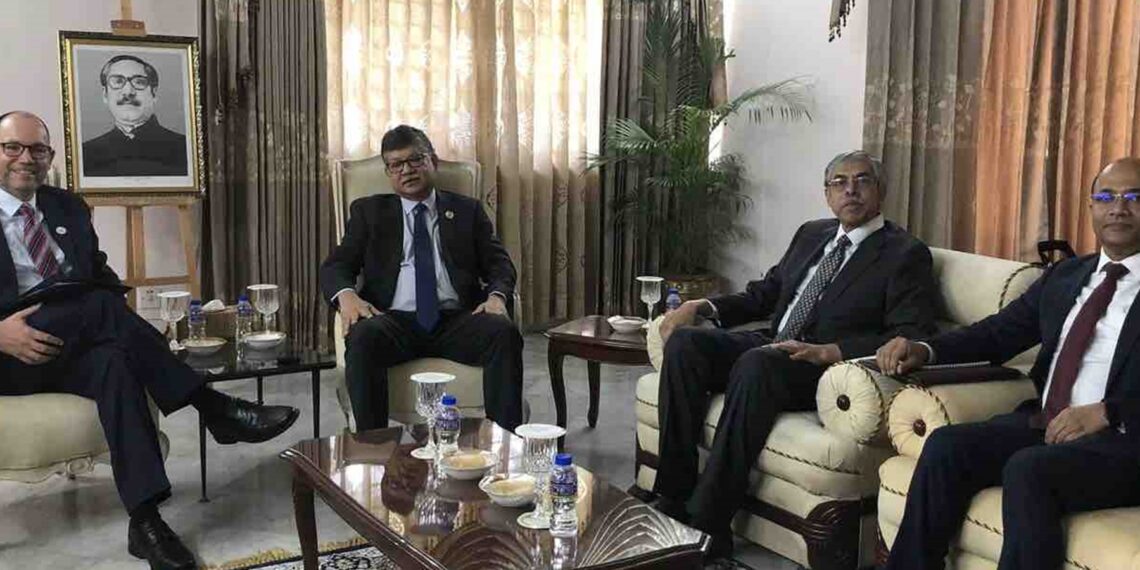US Ambassador to Bangladesh Peter D Haas met top Ministry of External Affairs officials in Delhi even as he was said to be on Christmas holiday in Mumbai between December 22 and 28, Indian foreign ministry sources revealed today amidst intense speculations of likely American punitive action against the ruling Awami League regime.
Bangladesh Prime Minister Sheikh Hasina has ignored repeated calls by the US State Department to hold free, fair, violence-free, participatory and inclusive elections.
Elections are scheduled to be held on January 7 while preparations, marred by controversies, irregularities and violence, are still afoot.
The ruling Awami League intends to deploy the army and several units of the Bangladesh Border Guards (BGB), the Rapid Action Battalion (RAB), thousands of paramilitary forces besides the police.
Since at least October-end, Bangladesh has been in the throes of violence with the ruling Awami League taking recourse to repressive measures against the Bangladesh Nationalist Party (BNP) even as it has the opposition party’s top leadership and more than 20,000 cadres and supporters in jails across the country.
It may be recalled that before leaving Dhaka for Mumbai, Haas met Bangladesh Foreign Secretary Masud Bin Momen and was said to have informed him of likely tough measures for the ruling Awami League’s failure to create the conditions for a free, fair, violence-free, participatory and inclusive election.
Sarah Cooke, the British High Commissioner to Bangladesh had also met Masud Bin Momen separately on December 22.
While there was no official word on what transpired during Haas’ meeting Momen, sources said that the American Ambassador told the Bangladeshi Foreign Secretary that punitive measures, including a range of sanctions, would be imposed on Bangladesh for failing to conduct free, fair, violence-free elections of international standards.
ALSO READ US team in Dhaka to probe Oct 28 violence as Haas to join Nov 10 Delhi meeting
On December 28, Momen, in an exchange of views meet with members of the Diplomatic Correspondents Association Bangladesh (DCAB), had sought to put up a brave front, saying that his country would face the sanctions and their consequences if and when they are imposed.
In a departure from diplomatic norms, Momen even took recourse to making political statements, saying that the “highest authorities are reiterating our commitment to holding a fair election and the Election Commission is moving forward with that goal”.
But this by and in itself may not be acceptable to the US which has been keep a keen eye on the controversial electoral process, the manner in which certain parties have been ‘selected’ as ones that will represent the opposition (in the BNP’s absence) and deal-making with other splinter groups and parties.
What is also significant about the MEA’s admission, that Haas met senior foreign ministry officials, is what position the Indian establishment, which has so far assiduously backed the ruling Awami League, will take in the days and weeks before Bangladesh goes to the polls.















